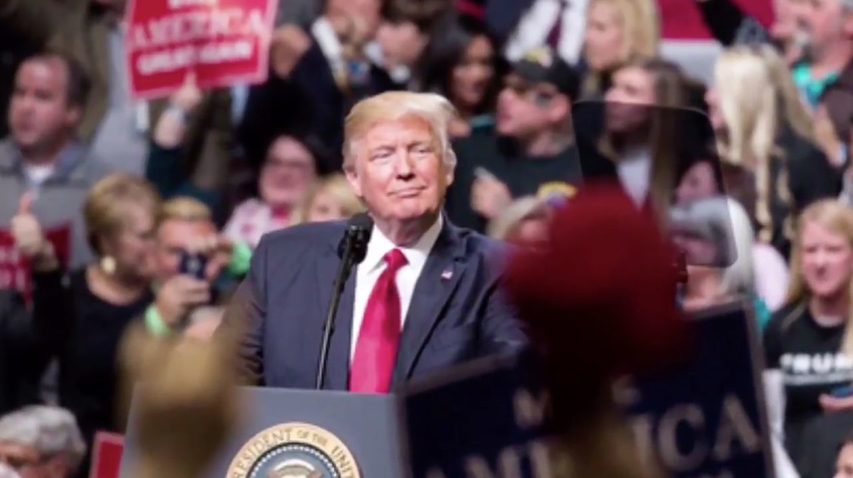Extra Credits
Published on 11 Jun 2019A Canticle for Leibowitz is a book about cycles and violence — about the cost of progress. But it is also about the persistence of humanity’s quest for knowledge and endless resilience. Unlike other post-apocalyptic fiction tropes, it is focused on the lives and goings of everyday people, rather than on the setting itself, and is a critical work to study if you want to understand the post-apocalyptic genre better.
Inspired by his own experience being part of the bombing campaign that leveled the ancient monastery of Monte Cassino during World War 2 and the fear of nuclear annihilation that gripped America during the Cold War, Walter M. Miller Jr. imagined the world in a brand new dark age, ushered in by the hubris of humankind — in the only novel he ever published.
June 12, 2019
A Canticle for Leibowitz – Dystopias and Apocalypses – Extra Sci Fi
Men’s mental health and the conflicting demands they face
In Psychology Today, Rob Whitley explains the paradoxical demands that men make active efforts to talk about mental health issues and to “check their privilege” and shut up:
Men, Please Talk More
Men experience elevated rates of numerous mental health issues including suicide and substance use disorder while showing low rates of mental health service utilization and a tendency to bottle-up. This has led many scholars to posit a silent crisis of men’s mental health.
Consequently, many mental health organizations and high-profile individuals are sending out an insistent message that men must talk more about their mental health.
Even royalty has endorsed this message, with HRH Prince William stating in a recent documentary that we need to “pass the message onto men everywhere that it’s okay to talk about mental health… and be able to talk about our emotions.”
Fine words indeed.
Men, Please Shut Up
However, other individuals and organizations are sending out a completely different message, namely that men as a group need to remain silent and “check their privilege.” As wryly noted by Bloomberg journalist Ramesh Ponnuru “check your privilege means shut your mouth.”
Such messages can be seen all over the Internet, with pleas for men to shut-up or stop whining. Of note, these pleas come from both men and women. These echo comments men often hear in face-to-face interactions, even from their intimates and their employers.
Indeed, such perspectives can emanate from high places, including the U.S. Senate, with Hawaii Senator Mazie Hirono recently stating, “I just want to say to the men in this country: just shut up and step up. Do the right thing for a change.” For some, male silence is a sign of moral rectitude.
This situation creates a men’s mental health double-bind. On the one hand, men are being told to talk more and open-up; on the other hand, men are being told to check their privilege and be silent. This can only create cognitive and emotional distress.
Interestingly, the men’s mental health double-bind manifests itself beyond the borders of the U.S. As such, examples from the U.K and Canada are given below to illustrate its global nature.
High Hitler! – Nazis on Crystal Meth Part 1 – WW2 SPECIAL
World War Two
Published on 11 Jun 2019You might have heard he a was vegetarian. You might have heard that he shunned alcohol. You might have heard he was anti-tobacco. Then you might think he was against hard drugs as well, but you’d be wrong…
Join us on Patreon: https://www.patreon.com/TimeGhostHistory
Or join The TimeGhost Army directly at: https://timeghost.tvFollow World War Two on Instagram @World_war_two_realtime https://www.instagram.com/world_war_t…
Join our Discord Server: https://discord.gg/D6D2aYN.
Between 2 Wars: https://www.youtube.com/playlist?list…
Source list: http://bit.ly/WW2sourcesWritten and Hosted by: Indy Neidell
Produced and Directed by: Spartacus Olsson and Astrid Deinhard
Executive Producers: Bodo Rittenauer, Astrid Deinhard, Indy Neidell, Spartacus Olsson
Creative Producer: Joram Appel
Research by: Spartacus Olsson
Edited by: Wieke Kapteijns
Sound design: Joakim BrodénColorisations by Julius Jääskeläinen https://www.facebook.com/JJcolorization/
A TimeGhost chronological documentary produced by OnLion Entertainment GmbH.
From the comments:
World War Two
2 hours ago (edited)
This is the first of our specials on drug use in the Third Reich, and this episode is about the drug addiction of Adolf Hitler himself. As Indy mentions in the video, YouTube regularly demonetises our content. Instead, we fully rely on our Patreon supporters to finance these series and this special. What doesn’t help, is that YouTube algorithm recommends demonetised episodes less, even further limiting our efforts. So, please share this video with your brothers and sisters, your friends, neighbours, your grandma and your history teacher. And make sure to turn on your notifications! And if you really like what we do – please consider supporting us on https://www.patreon.com/TimeGhostHistory or at https://timeghost.tv.
The fantastic notion that Donald Trump is “at heart really a free trader”
Guest-posting at Catallaxy Files, Don Boudreaux explodes the farcical notion that President Trump is using protectionist tools with an eventual free trade goal:

Donald Trump addresses a rally in Nashville, TN in March 2017.
Photo released by the Office of the President of the United States via Wikimedia Commons.
In the case of Donald Trump, the claim that he is at heart really a free trader who raises tariffs today with the aim of bringing about lower tariffs tomorrow — and all because he is committed to achieving free traders’ ideal goal of maximum possible expansion of the international division of labor — is especially preposterous.
Trump has pontificated on trade for decades, and every word out of his mouth clearly reveals a man who knows nothing about the economics of trade and who is as clichéd an economic nationalist as can be imagined.
Behold this line from a 1990 interview he did in Playboy: “The Japanese double-screw the US, a real trick: First they take all our money with their consumer goods, then they put it back in buying all of Manhattan. So either way, we lose.”
Let’s examine this unalloyed gem of economic witlessness.
Overlooking Trump’s outrageous exaggerations, such as his claim that the Japanese buy up “all” of Manhattan, we start by stating an obvious truth: the voluntary purchase of a good is not a transaction in which the buyer is “screwed” or has his or her money “taken.” Instead, the buyer’s money is voluntarily spent. While every person of good sense sees a foreign seller who makes attractive offers to domestic buyers as someone who improves the well-being of each buyer who accepts the offer, Trump sees this seller as a con artist or thief.
And so Trump ignores the value to Americans of the imports we purchase. In typical mercantilist fashion, he believes that the ultimate purpose of trade is to send out as many exports as possible in exchange for as much money as possible — money that in Trump’s ideal world is never spent on imports. His view on this matter is even more bizarre than that of ordinary mercantilists. For Trump, imports are not merely costs that we endure in order to export, they are actual losses. (Although it goes without saying, I’ll say it nevertheless: Trump does not understand that imports are benefits and that exports are costs.)
Furthermore, by describing the money spent on imports as “our money,” Trump reveals his belief that money earned by each American does not belong to that individual but, instead, to the collective.
Also in the fashion of the typical mercantilist, the presumption is that the nation is akin to a gigantic household whose members all share in and collectively own its money. And just as Dad justly superintends little Emma’s and Bobby’s spending to ensure that they don’t dissipate the family’s wealth, Uncle Sam must superintend his subjects’ spending in order to ensure that we don’t dissipate the nation’s wealth.
One other flaw in the above quotation from Trump’s Playboy interview is notable: he believes that foreign investments in America inflict losses on us. He doesn’t pause to consider that when we Americans sell assets to foreigners we regain ownership of some of the dollars that Trump, in his previous sentence, lamented are lost to Americans when we bought imports.
Nor does he ask what the American sellers of these assets do with the sales proceeds. Perhaps we invest some or even all of them. And if so, perhaps these new American investments will prove to be more profitable than are the investments made in America by foreigners. (By the way, contrary to another mercantilist myth, Americans are not made better off when foreigners’ investments in America fail. Quite the contrary.)
An even deeper error infects Trump’s “understanding” of foreign investment: he implicitly — and, once again, like all mercantilists — assumes that the amount of capital in the world is fixed. Only then would it be true that each American sale of assets to foreigners necessarily reduces Americans’ net financial worth (which is presumably what Trump means when he says that “we lose” when the Japanese purchase Manhattan real estate).
Instant Access Tool Center
Patrick Sullivan
Published on 9 Mar 2019Designing and building a case that provides instant access for most of the small tools that you use regularly. This portable fixture is set up so that you can easily access the tools you need, and also replace them the second you are finished with them, keeping your workplace organized. It protects small tools from damage or loss, and increases efficiency by ensuring that they will not get lost in workbench clutter.
Plans: this fixture needs to be customized to each woodworker’s personal needs and tools, so it makes little sense to exactly duplicate my layout. However, I will post photos of the case on my website, with dimensions, to help you get started with your own layout. Here is the link to my website:
https://psullivancarmel.wixsite.com/t…
QotD: Militant Islam and the Western media
Mark Steyn is a brave man. He doesn’t talk about his death threats or his security measures, but his public life speaks for itself. For the fifth anniversary of the Muhammad cartoon controversy, he stood on a stage in Copenhagen with the Danes who were not yet in hiding along with Lars Vilks, the Swedish cartoonist who had survived physical attacks, arson, at least three assassination plots, and an Al Qaeda hit list. Steyn returned for the tenth anniversary observance, a few months after the Charlie Hebdo massacre, but by then no cartoonists were left — they were all in hiding, including Vilks, after yet another attempt on his life.
“I’m always willing to stand with the guys in Denmark,” says Steyn. “But the reason all these left-wing Europeans end up on a stage with an eccentric right-wing Canadian like me is that no real A-list stars will agree to be there. At the tenth anniversary both the American State Department and the British Foreign Office even issued official warnings to their citizens to stay away from the Danish Parliament, where we were holding the ceremony. What kind of signal does that send? Why don’t the artists show up for these things? Why aren’t the movie stars there? When Theo Van Gogh was assassinated, no one at the Oscars had a word to say about it. They didn’t even put him in the obituary montage. And yet they congratulate themselves on their moral courage. George Clooney wears a Je suis Charlie Hebdo pin. Helen Mirren wears a brooch. But they were not with Charlie. Those guys died alone. This is gesture politics. No one would stand with them. I honour the genuine courage of Ayaan Hirsi Ali. Ayaan’s point is absolutely right — in the end you have to share the risk. Charlie Hebdo supported the Danish cartoonists, but the rest of the world didn’t. If every newspaper had published those cartoons, there would have been no point in killing anyone because there would have been too many people to kill. Instead, nobody stands with them, and so the small publication that does ends up massacred. The writer of the comic strip Doonesbury in America [Garry Trudeau] attacked the decision of PEN to honour Charlie Hebdo. Well, they were lying on the floor, bleeding and dying. I don’t think they noticed.”
The Danish cartoon controversy was actually the first moment the American press had been challenged by Islam and could do something in response — and their reaction was a spectacular failure of will and principle. In several countries around the world, it was actually against the law to publish the Danish cartoons, but many editors stepped up, published them anyway, and suffered the civil and criminal consequences. In the United States — where there was no such law — no major publication would print them.
Mark Steyn, interviewed by John Bloom, “Mark Steyn, Cole Porter and Free Speech”, Quadrant, 2017-05-11.







